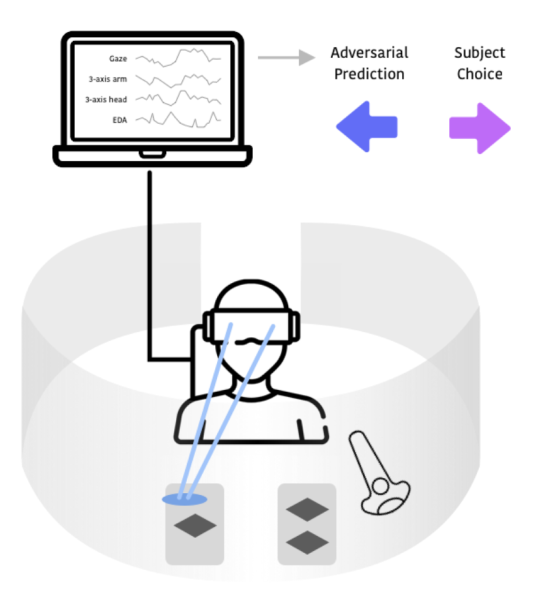Covert Embodied Choice: Decision-Making and the Limits of Privacy Under Biometric Surveillance
Gordon, Jeremy Raboff, Max T. Curran, John Chuang, and Coye Cheshire. "Covert Embodied Choice: Decision-Making and the Limits of Privacy Under Biometric Surveillance." In Proceedings of the 2021 CHI Conference on Human Factors in Computing Systems, pp. 1-12. 2021.
Abstract
Algorithms engineered to leverage rich behavioral and biometric data to predict individual attributes and actions continue to permeate public and private life. A fundamental risk may emerge from misconceptions about the sensitivity of such data, as well as the agency of individuals to protect their privacy when fine-grained (and possibly involuntary) behavior is tracked. In this work, we examine how individuals adjust their behavior when incentivized to avoid the algorithmic prediction of their intent. We present results from a virtual reality task in which gaze, movement, and other physiological signals are tracked. Participants are asked to decide which card to select without an algorithmic adversary anticipating their choice. We find that while participants use a variety of strategies, data collected remains highly predictive of choice (80% accuracy). Additionally, a significant portion of participants became more predictable despite efforts to obfuscate, possibly indicating mistaken priors about the dynamics of algorithmic prediction.










